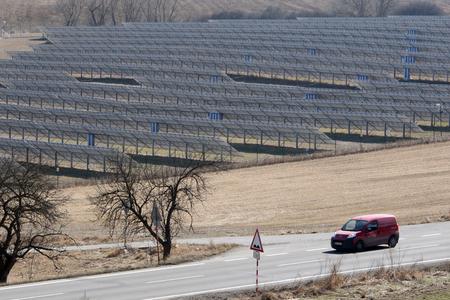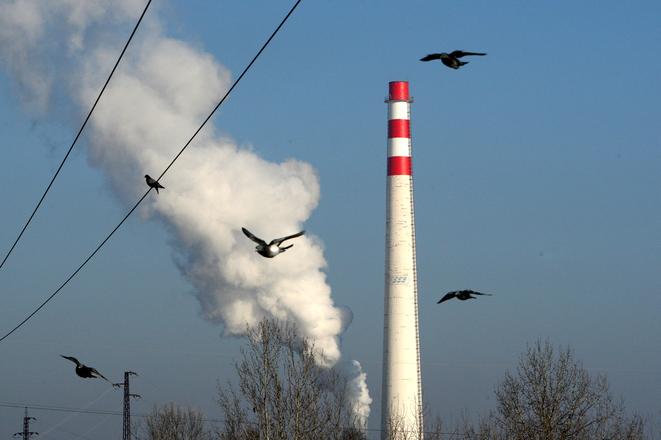So-called ‘gold-plating’ of laws is an issue in Slovakia, where national implementation of EU directives and regulations often exceeds what that legislation actually requires, increasing the administrative burden when complying with the law, and thereby obstructing businesses. As of the beginning of October, a new measure comes into effect that should eliminate this negative phenomenon, says Jana Alušíková, partner at the act MPH advocates law firm.
Besides gold-plating, The Slovak Spectator spoke with Alušíková about legal changes that the energy crisis has brought about, ESG reporting, and more.
Has the energy crisis uncovered any problematic legislation related to the energy sector in Slovakia?
Significant changes in legislation regarding the energy field happened. Revisions from autumn 2022 mainly affected primary legislation such as the Heating Energy Act and the Act on the Promotion of Renewable Energy Sources and High Efficiency Cogeneration. The amendments reflected the obligation to transpose the directive on renewable energy sources, so it was not primarily considered to be a change of legislation in relation to the problems of the energy sector at that time. However, also because of the energy crisis that hit right after the revision of the respective laws, there was a lack of legislation in relation to several issues such as the connection/construction of new sources of heat production and related approval processes. The government was trying to address the negative impacts of the crisis on households and entrepreneurs using secondary legislation. But the speed of adoption and its targeting was often considered unsatisfactory.
How do you see the scope of regulating the energy market in Slovakia compared to other EU member countries? Are efforts to cap energy prices for selected consumers in Slovakia a legal issue for energy companies, either producers or suppliers?
While price deregulation is standard across Europe, in the past months we can observe the opposite tendency by the regulator in Slovakia, which leads to tightening of regulation, or an increase in the reporting burden for electricity suppliers. Flat regulation leads to a situation where suppliers don’t even have the real costs of providing the supplies covered, which breaches the elementary principle assumed by the legislation. Severely tight regulation leads to a breach of competition, considered an undesirable condition in each business area, which finally might lead to the opposite effect.

To what extent is energy sector legislation a matter for individual EU member countries? On which issues can individual member countries decide on their own?
The European Union also creates the legal framework in the energy field in order to fulfil the mutual targets declared by member states, which are mandatory. So, in the European Union, European legislation is in the form of regulations and directives that member states are obliged to implement in their national legislations. For example, in recent months the Energy Efficiency Directive was adopted, to ensure that member states decrease their final energy consumption by 2030. It is up to individual states how they implement the requirements of the regulations in their national legislations. If the member state fails to implement European Union law, the European Commission might commence infringement proceedings against the respective member state. For example, Slovakia has faced infringement proceedings when it came to transposing the directive on the promotion of energy from renewable sources, since its implementation was not performed within the required time frames.
In March the European Commission presented a proposal to revise the rules for electricity market design and for improving EU protection against market manipulation in the wholesale energy market. In what stage is the adoption of this revision and what changes will it bring to Slovakia?
Reform of the electricity market is currently a big topic in the European Union in the field of energy. The aim is to ensure greater resilience in the market and consumer protection against price instability by increasing the promotion of renewable sources and the gradual termination of fossil fuel usage. The proposed reform will become effective after its approval by the European Parliament and the Council. In case of approval, it is possible to expect the need to adopt more significant changes, subsequently transformed into primary and secondary legislation in the energy field.

Is gold-plating a problem when it comes to the transposing of EU legislation into Slovak law?
Unfortunately, we are also dealing with gold-plating while transposing European legislation in Slovakia. For example, gold-plating was discussed in relation to revising the Cyber Security Act, but also in connection with waste management or electronic communications. In most cases it’s considered to be a negative phenomenon connected to the incorrect transposition of directives, often increasing the administrative burden and obstructing the business of entrepreneurs.
The government’s legislative rules were amended with the aim to monitor better, or to eliminate gold-plating, effective as of October 1, 2023.
Are law firms concerned with renewable energy sources and innovation in the energy sector?
All innovations and changes are obviously connected to changing legislation. It’s also the same in the energy sector, where taking into consideration the requirements of European legislation, we expect the adoption of many changes in the future for its transformation into the legislations of individual member states. Energy, ESG, renewable sources and innovations are naturally issues that law offices are currently dealing with. The energy crisis has brought about new situations and problems that our clients are dealing with on a daily basis. Since the approach of the regulator was often ambiguous or hard to predict, I also believe that our advice helped our clients to overcome those hard times.
ESG reporting will be an issue for companies. Are there any obligations stemming from this for companies in Slovakia in terms of energy?
In connection with ESG reporting in the energy sector, the energy economy of the subject would be decisive, including the need to involve renewable energy sources into at least the partial covering of the consumption. At the same time, the fulfilment of single rating criteria and thorough data collection as well as its assessment would be a decisive factor.
Which legislation related to the energy sector in Slovakia do you consider to be problematic or requiring change?
A currently discussed topic in the energy field is the so-called community energy sector. It’s a term introduced to Slovak legislation by an amendment from one year ago. However, the lack of detailed legislation does not allow possible potential in this regard. From my point of view, there are currently no sufficient rules and conditions that will allow the members of the association to share energy through distribution channels and fulfil the basic targets this project intends to implement.
How do you perceive the method by which energy sector legislation is adopted in Slovakia, as the business sector in general complains that laws in Slovakia are being changed too often and without proper discussion with stakeholders?
Energy is a sector where the legal framework is significantly created by the implementing regulations and price decision of the regulator. If we don’t consider the last few months of the energy crisis, which could be characterised by adopting not previously communicated changes and solutions at the last minute, regulation via adopting implementing regulations is mostly performed within well-established rules. On the other hand, as lawyers we observe the lack of legislation adopted in this way, often in conflict with higher legal rules. The adopted legislation often ignores the needs and problems of subjects in the energy sector and disrupts competition beyond the appropriate level.


 (source: Sme)
(source: Sme)
 Jana Alušíková (source: Courtesy of act MPH advocates)
Jana Alušíková (source: Courtesy of act MPH advocates)